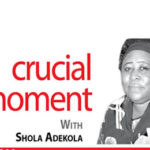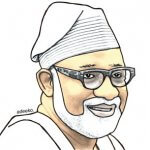The democratic world erupted into celebrations on December 1, 2016 following the outcome of the presidential election in The Gambia. According to an official announcement, Adama Barrow of the opposition party emerged victorious over President Yahaya Jammeh, a military coup plotter turned civilian president who had been ruling the landlocked country for the past 22 years. The glee was reinforced when Jammeh himself conceded defeat and congratulated Barrow on his victory.
However, shortly thereafter, the glee turned into gloom as President Jammeh denounced the result of the election. In a speech aired on state television, Jammeh founded his refusal to respect the results of the election on “serious and unacceptable abnormalities” and thus called for a rerun of the entire election. Jumping a mile forward, the President banned all protests in the country and ordered the Army to cordon the streets in search of dissidents. Almost immediately, the euphoria across Africa, which had earlier heightened with the Ghanaian President, John Mahama’s concession of defeat to the opposition, grew faint. The continental jubilation had turned into cold recrimination.
Needless to say, the Gambian electoral debacle has attracted the attention of the international community. Already, interventions have sprouted from his Economic Community of West African States (ECOWAS) neighbourhood. The Presidents of Nigeria, Liberia and Ghana visited Jammeh shortly after his volte-face and hinted of a work in progress to get the electoral wishes of the Gambian people respected. The opposition coalition in the country has decried what it called an unconstitutional ploy to derail the democratic transition programme put in place by the Jammeh government while ECOWAS and the African Union have pilloried his decision which they tagged a frontal threat to peace in the tiny African country. Indeed, virtually all world leaders have urged the former military leader to step down and obey the dictates of democracy and the rule of law.
Already, a post-election crackdown has begun in earnest. President Jammeh has ordered troops to seize the headquarters of the Independent Electoral Commission (IEC) and sacked its chairman, accusing the commission of pandering to foreign influences. Jammeh’s reason for changing his mind after conceding defeat was that information reaching him indicated that his supporters were turned back from voting on the claim that the opposition candidate had already won. Again, the President queried the electoral commission’s apparent inconsistency in revising the results of the election after its announcement. While admitting its error during the tally of the result, the IEC had claimed that the error merely lowered the victory margin of the President-elect, Barrow, but did not significantly affect his victory. According to it, Barrow’s win was pruned down from nine percent to four percent, with Barrow scoring 43.3 percent of the votes cast while Jammeh got 39.6 percent and the third candidate, Mama Kandeh, got 17.1 percent in the revised figures.
While Jammeh’s action in asking the court to decide the real winner of the election may be the desirable and democratic path to tread, the equivocation in his decision is too glaring, and suggests that he is merely playing the ostrich. The Gambian Supreme Court, which is empowered to hear the case, is at the moment under lock and key since it is not fully constituted. Out of the seven-member panel, the Chief Justice is the only one who has retained his post while two judges of the court had their appointments terminated by President Jammeh in June, 2015. Indeed, it is a known fact that The Gambia’s Supreme Court has since been malfunctioning and any attempt by President Jammeh to appoint judges who will preside over the matter will ultimately be a miscarriage of justice since he himself is an interested party. Indeed, more instructive is the fact that the constitution stipulates that Jammeh must vacate power by January 14, 2017, thus leaving the probability of a constitutional lacuna if he does not vacate power.
Again, while it may be apposite to state that the IEC and the opposition coalition played into Jammeh’s hands, first by the IEC’s error while collating the final results and secondly by a statement credited to a senior member of the opposition coalition, Fatoumata Jallow-Tambajang, that Jammeh would face trial after leaving office, the President should be encouraged to accept the results. Though the fear of trial is said to be Jammeh’s reason for a volte-face, regional leaders should intensify rapprochement efforts between the parties in order to save The Gambia from the impending after-effects of Jammeh’s refusal to hand over power.
African leaders must bring to Jammeh’s attention, the implications of not leaving office. The world is at the moment very hostile to sit-tight leaders and any attempt by him to continue on this path will cause a major crisis for The Gambia. There is a lot to learn from countries whose leaders lost elections and allowed the wishes of the people to prevail.





